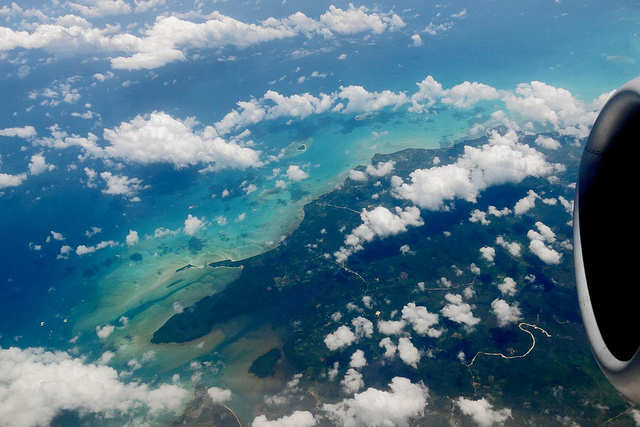
Indonesian president Joko Widodo’s strategy for reinforcing state sovereignty and strengthening maritime integrity is being tested with the latest incursion by Chinese fishing boats into Indonesian waters off the Natuna islands. Indonesian Minister for Fisheries and Maritime Affairs Susi Pudjiastuti’s public criticism of China’s activities is the first step in what’s likely to become a series of reluctantly enacted but necessary responses from Jokowi’s administration—unlike in the past, Indonesia can’t afford to do otherwise.
This isn’t the first time Indonesia has had to contend with Chinese assertiveness in the South China Sea. Over the last four years, Jakarta’s attempts to enforce its fisheries’ laws by arresting Chinese fishermen operating illegally in Indonesia’s EEZ has led to a series of confrontations between the Chinese Fisheries Law Enforcement Command and Indonesian law enforcement vessels. Traditionally, Indonesia’s foreign ministry has tried to dismiss those engagements as minor in order to maintain its relationship with China.
While such events aren’t related to sovereignty disputes over the Natuna Islands (which China has stated it doesn’t claim), the EEZ created by the islands overlaps with China’s nine-dash line. Previously, the Indonesian foreign ministry has demanded clarification of the legality of the nine-dash line but has received no response. Pudjiastuti’s summoning of China’s ambassador to Indonesia, Xie Feng, on the 21 March to discuss China’s latest claim that its fisherman were within ‘traditional Chinese fishing grounds’ is also unlikely to clarify the matter. Rather, it’s apparent that the recent incursion by China into Indonesia’s waters is an intentional challenge to Jakarta’s resolve.
So far, Jokowi’s administration has been cautious with China. That wariness has been clearly displayed in its hesitancy to sink Chinese-flagged boats as a part of its ‘Sink the Vessels’ policy directed against illegal fishing. The Administration abstained for six months until it eventually destroyed a Chinese vessel on 20 May 2015 that had been in custody since 2009.
Indonesia’s soft approach to Chinese illegal fishing vessels—compared to the brazen destruction of those of belonging to its neighbours—has drawn significant derision. Moreover, it’s a sign of Indonesia’s diplomatic inconsistency. Last week’s heightened tensions in the waters surrounding the Natuna islands has the potential to undermine the more positive diplomatic relations that developed between China and Indonesia during Susilo Bambang Yudhoyono’s presidency. In 2013, China and Indonesia signed a wide-ranging strategic partnership that extended cooperation between the two nations, with a particular emphasis on economic investment. Around the same time, the two countries enacted a number of cooperative security initiatives, including agreements on joint counterterrorism training and the shared development of anti-ship missiles. The Jokowi Administration is keen to retain those economic and security ties, which it desperately needs to fulfill its domestic infrastructure development plans and pre-election promise of stemming the tide of growing economic inequity.
But Indonesia can no longer downplay China’s excursions into its territorial waters as minor incidents in the hope that they won’t increase in frequency. Moreover, Jokowi’s political ambition of creating a ‘strong state’ and his nationalistic and populist agenda demands that he address those maritime issues with China, lest he appear weak in the eyes of the Indonesian public.
Jokowi has only a select number of options to address China’s incursion. The first is to make a calculated and explicit display of Indonesia’s displeasure with China that may range from recalling its ambassador to dragging its feet on various bilateral initiatives, which are detailed in the October 2013 Comprehensive strategic Partnership. While that’ll bolster the perception of Indonesia’s resolve domestically and internationally, it may result in the loss of significant investments from China that Indonesia desperately needs for its faltering economy.
Second, Jokowi could make a concerted effort to build a stronger coalition both within Indonesia and across the region to constrain China’s low-intensity coercion. That would require strong leadership from Jokowi to settle the differences between Indonesia’s Armed Forces and Foreign Ministry. That will be integral to establishing a coherent foreign policy that inspires confidence in Jakarta’s capabilities and displays intent to its neighbours. An inclusive regional policy on maritime disputes would serve to further Indonesia’s desire to be perceived globally as a regional leader that can manage regional tensions.
Third, Jokowi could display a greater interest in balancing behavior, possibly by encouraging the purchase of coastal patrol vessels from Japan or providing greater port access to the US navy. However, overt engagement with the likes of the US or Japan is doubtful given Indonesia’s long tradition of ‘non-alignment’.
At an operational level, Jokowi could also seek to quicken the enhancement of Indonesia’s maritime surveillance and reconnaissance capabilities, as well as bolster protection for its coast guard and fishing vessels. However, Indonesia will run into difficulties when attempting to find resources for those improvements.
Regardless of the path that Jokowi chooses to take, it’s a decision that he doesn’t want to make, and a decision that will come at a cost to Indonesia’s economy—but ultimately, Jokowi has no other choice.

